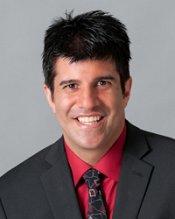College Counseling For Connecticut Students: The College Major and its Implications
By Daryl CapuanoCollege CounselingKeith was a good but not great math student from Old Lyme, Connecticut. . Like many 18 year olds, he had no idea what he wanted to do with his career. Of all the problems in our school system, I’ll suggest that lack of career education has to be one of the most underrated. High schools do almost nothing to educate students about potential careers. Lyme-Old Lyme High School is one of the very high schools in the state and it does more than most in this regard. Also, this was half a dozen years ago, so I’m sure Lyme-Old Lyme High School does more today.
In any event, Keith’s well meaning parents were worried and suggested – given his reasonable math skills – that he head into engineering. Keith’s first year at college was rocky. He had fun. He did well in his non-engineering classes and he got by Bs and high Cs in his engineering classes. During his second year, he started to struggle. His parents called me through Career Counseling Connecticut.
They were worried that their normally easy going son was going into a downward spiral psychologically. They were not sure if was just his classes as he was floundering in his harder math classes or something more but when he yelled: “I don’t want to be an engineer”, they realized that thought of his career were the real issue. Most college or career counseling stories do not have quick fix happy endings but this one did. Simple career personality testing revealed that Keith was not well suited to be an engineer. He liked math more than he liked reading. But he didn’t really like math enough to do problems alone for hours like most engineers could do. Moreover, Keith didn’t feel a fit with his fellow engineering students. He was far more suited to business both academically and socially. He switched majors to finance and quite quickly stopped spiraling downward.
Here’s what’s interesting: Keith’s parents gave generically wise advice to major in engineering. If you had to choose an employable major, engineering would be very high on the list. Indeed, when I provide college counseling to students and they express an interest in STEM, I would have to hear something indicating a real mismatch to dissuade them from entering a practical field.
But… Keith was simply not suited for engineering. In his case, we were able to solve the situation quickly, although he did suffer for several months. With others, they have to take a 5th year (costs add up!) or transfer (I know it has become more common but transferring is not ideal) or perhaps worst of all, start a career in a field that is likely to cause unhappiness.
Figure out your college major or at least potential college major before you head to college.

CEO, The Learning Consultants and Connecticut’s top private education consultant
full bio

